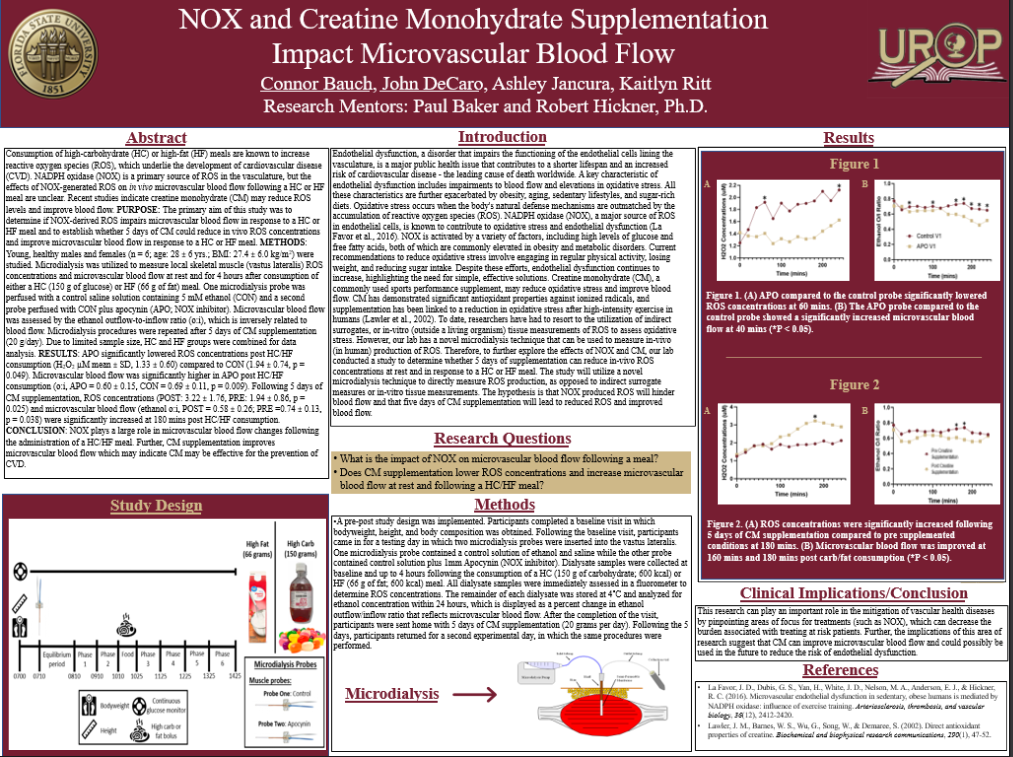Research Symposium
23rd annual Undergraduate Research Symposium, April 6, 2023
Connor Bauch Poster Session 2: 1:30 pm - 2:30 pm/ Poster #220

BIO
My name is Connor Bauch. I am from Alpharetta, Georgia. I am currently a sophomore and I plan to pursue further education in medical school.
NOX and Creatine Monohydrate Supplementation Impact Microvascular Blood Flow
Authors: Connor Bauch, Paul BakerStudent Major: Biological Sciences
Mentor: Paul Baker
Mentor's Department: Nutrition, Food, and Exercise Sciences Mentor's College: Florida State University Co-Presenters: John Decaro
Abstract
High-carbohydrate (HC) or high-fat (HF) meals are known to increase reactive oxygen species (ROS), which underlie the development of cardiovascular disease (CVD). NADPH oxidase (NOX) is a primary source of ROS in the vasculature, but the effects of NOX-generated ROS on in vivo microvascular blood flow following a HC or HF meal are unclear. Recent studies indicate creatine monohydrate (CM) may reduce ROS levels and improve blood flow. The primary aim of this study was to determine if NOX-derived ROS impairs microvascular blood flow in response to a HC or HF meal and to establish whether 5 days of CM could reduce ROS concentrations and improve microvascular blood flow in response to a HC or HF meal. Young, healthy males and females were studied. Microdialysis was utilized to measure local skeletal muscle ROS concentrations and microvascular blood flow at rest and for 4 hours after consumption of either a HC (150 g of glucose) or HF (66 g of fat) meal. Microvascular blood flow was assessed by the ethanol outflow-to-inflow ratio. Microdialysis procedures were repeated after 5 days of CM supplementation. Microvascular blood flow was significantly higher in APO post HC/HF consumption. Following 5 days of CM supplementation, ROS concentrations, and microvascular blood flow were significantly increased at 180 mins post HC/HF consumption. NOX plays a large role in microvascular blood flow changes following the administration of a HC/HF meal. Further, CM supplementation improves microvascular blood flow which may indicate CM may be effective for the prevention of CVD.
Keywords: creatine, cardiovascular, exercise


